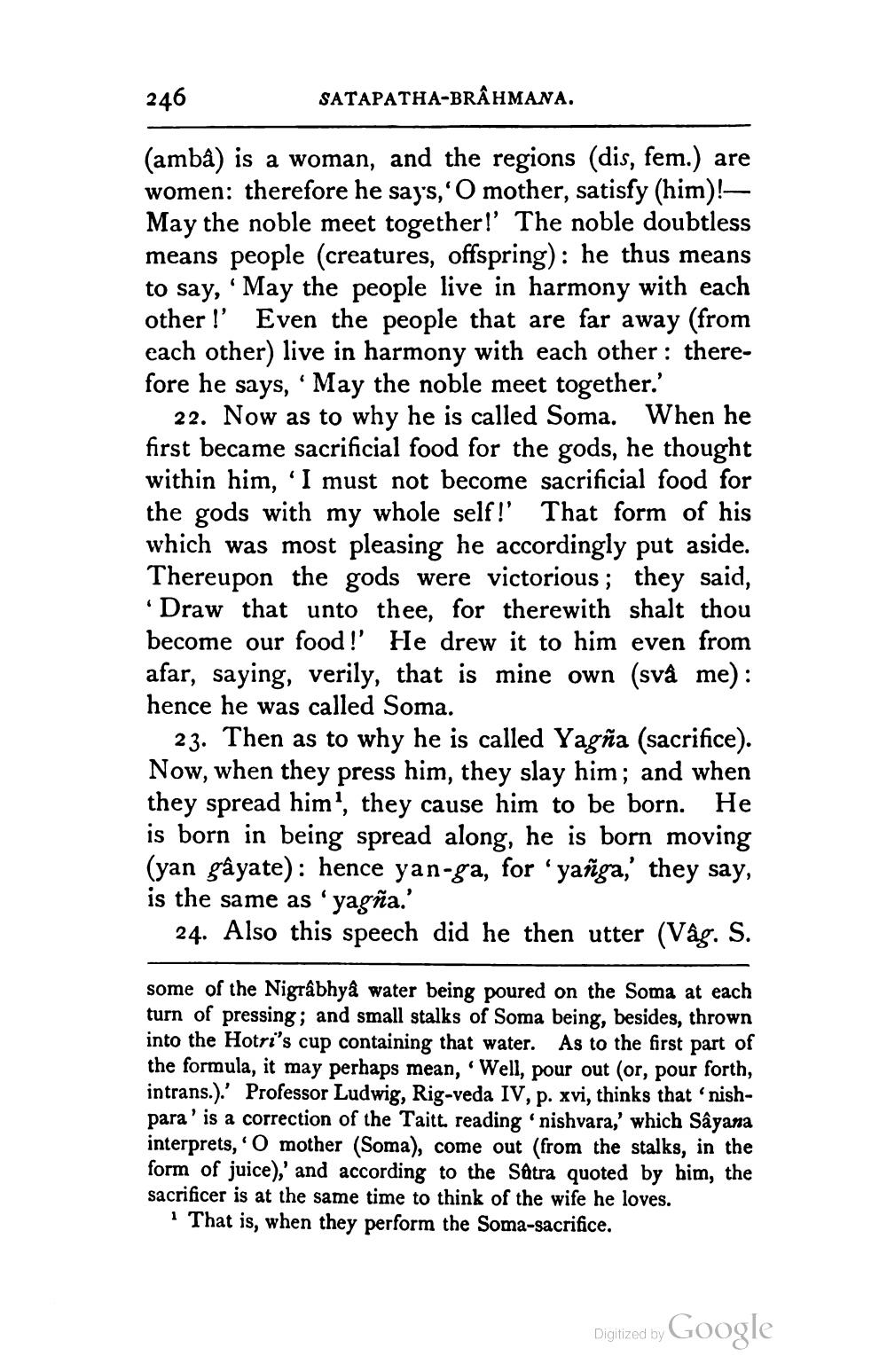________________
246
SATAPATHA-BRÂHMANA.
(ambå) is a woman, and the regions (dis, fem.) are women: therefore he says, 'O mother, satisfy (him)!May the noble meet together!' The noble doubtless means people (creatures, offspring): he thus means to say, May the people live in harmony with each other !' Even the people that are far away (from each other) live in harmony with each other : therefore he says, ' May the noble meet together.'
22. Now as to why he is called Soma. When he first became sacrificial food for the gods, he thought within him, 'I must not become sacrificial food for the gods with my whole self!' That form of his which was most pleasing he accordingly put aside. Thereupon the gods were victorious; they said, * Draw that unto thee, for therewith shalt thou become our food!' He drew it to him even from afar, saying, verily, that is mine own (svå me): hence he was called Soma.
23. Then as to why he is called Yagña (sacrifice). Now, when they press him, they slay him; and when they spread him”, they cause him to be born. He is born in being spread along, he is born moving (yan gâyate): hence yan-ga, for 'yañga,' they say, is the same as 'yagña.'
24. Also this speech did he then utter (Væg. S.
some of the Nigrâbhyâ water being poured on the Soma at each turn of pressing; and small stalks of Soma being, besides, thrown into the Hotri's cup containing that water. As to the first part of the formula, it may perhaps mean, Well, pour out (or, pour forth, intrans.).' Professor Ludwig, Rig-veda IV, p. xvi, thinks that 'nishpara' is a correction of the Taitt. reading nishvara,' which Sâyana interprets, 'O mother (Soma), come out (from the stalks, in the form of juice),' and according to the Sätra quoted by him, the sacrificer is at the same time to think of the wife he loves.
1 That is, when they perform the Soma-sacrifice.
Digitized by Google




